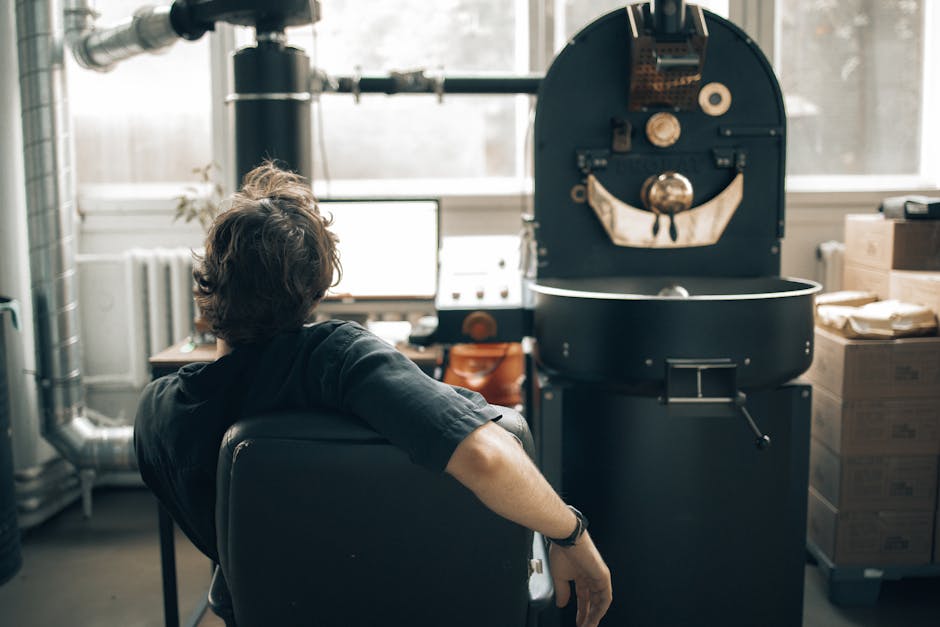
The Journey from Bean to Brew: The Traceability of Our Coffee Shop's Products
The coffee bean journey: From farm to cup
Coffee beans undergo a fascinating journey from the farm to your cup. It all begins with the careful cultivation of the beans on coffee plantations. Farmers harvest ripe coffee cherries and then process them to extract the beans inside. The beans are then dried, sorted, and roasted to perfection by skilled roasters. The final step involves grinding the beans and brewing them to create the delicious coffee you enjoy. This meticulous process ensures that every sip of coffee you take tells a story that started on a distant farm.
Understanding the sourcing process at our coffee shop
Our coffee shop values transparency in sourcing our products. We work closely with coffee farmers to ensure high quality beans. Each step from bean selection to roasting is crucial in delivering the best brew to you. Our focus on traceability means you can trust the origin of every cup.
Importance of traceability in coffee production
Traceability in coffee production is crucial for ensuring the quality and authenticity of the beans. When we can trace the journey of our coffee beans from the farm to the cup, we know exactly where they come from and how they were processed. This transparency not only guarantees the freshness and flavor of the coffee but also allows us to support sustainable and ethical practices in the coffee industry. By prioritizing traceability, we can build trust with our customers and showcase the dedication we have towards providing them with the best possible coffee experience.
Impact of coffee bean quality on your cup of coffee
The quality of coffee beans directly affects the taste of your coffee. High-quality beans deliver a rich, flavorful cup, while lower quality beans may result in a bland or bitter taste. Factors like where the beans are sourced, how they are processed, and their freshness all play a role in the final flavor of your brew. Selecting the finest beans ensures a delicious and satisfying coffee experience.
The role of fair trade in supporting coffee farmers
Fair trade plays a crucial role in supporting coffee farmers by ensuring they receive fair prices for their beans. This practice helps to improve the livelihoods of farmers and their communities by providing them with better working conditions and sustainable incomes. Fair trade also promotes environmentally friendly farming practices and encourages social responsibility within the coffee industry. By choosing fair trade coffee, consumers can contribute to the well-being of coffee farmers and help to create a more ethical and sustainable coffee supply chain.
How sustainability practices benefit our coffee products
To ensure sustainability, we source our coffee beans from farmers who follow eco-friendly practices. This benefits our coffee products in various ways:
- Quality: By supporting sustainable practices, we ensure that our coffee beans are of high quality, leading to flavorful brews.
- Environmental Impact: Sustainable farming methods help protect the environment by conserving natural resources and reducing carbon footprint.
- Social Responsibility: It allows us to contribute to the well-being of coffee farmers and their communities, fostering ethical business practices.
-
Traceability: By prioritizing sustainability, we can trace the journey of our coffee beans from farm to cup, ensuring transparency and accountability in our supply chain.
The process of roasting coffee beans
Roasting coffee beans involves heating them until they turn a dark color and develop a rich flavor. During the roasting process, beans are constantly stirred to ensure even roasting. The beans undergo physical and chemical changes that affect their taste and aroma. The time and temperature of roasting are crucial in determining the coffee flavor profile. The beans crack audibly as they roast, and after cooling, they are ready to be ground and brewed.
Flavors and aromas: A guide to coffee tasting
When tasting coffee, focus on the flavors and aromas in your cup. Flavor refers to the overall taste profile, such as fruity, nutty, or chocolatey notes. Aroma is the fragrance you smell before taking a sip, influenced by the coffee’s origin, roast level, and brewing method. To enhance your coffee tasting experience:
- Sniff the coffee to identify its aroma.
- Take a small sip and let it coat your tongue.
- Swirl the coffee in your mouth to fully taste the flavors.
- Pay attention to aftertaste, which is the lingering flavor sensation.
Experiment with different coffees to develop your palate and appreciate the unique characteristics of each brew.
Brewing techniques at our coffee shop
Our coffee shop takes pride in using various brewing techniques to create unique and delicious coffee drinks. Whether it’s pour-over, French press, espresso, or cold brew, each method brings out different flavors and characteristics in the beans. We believe that the brewing process is just as important as the quality of the beans in determining the taste of your coffee. At our shop, we continuously explore new techniques and experiment with different brewing methods to ensure that every cup of coffee we serve is a delightful experience for our customers.
Enhancing your coffee experience: Tips and recommendations
To enhance your coffee experience, here are some tips and recommendations for you. Experiment with different coffee types to find your favorite. Grind your coffee beans just before brewing for a fresher taste. Use filtered water for better flavor. Adjust the coffee-to-water ratio to your liking. Try different brewing methods like pour-over or French press for a change in taste. Explore different roasts to discover new flavors. Visit local coffee shops and ask baristas for their recommendations. Enjoy the journey from bean to brew!

